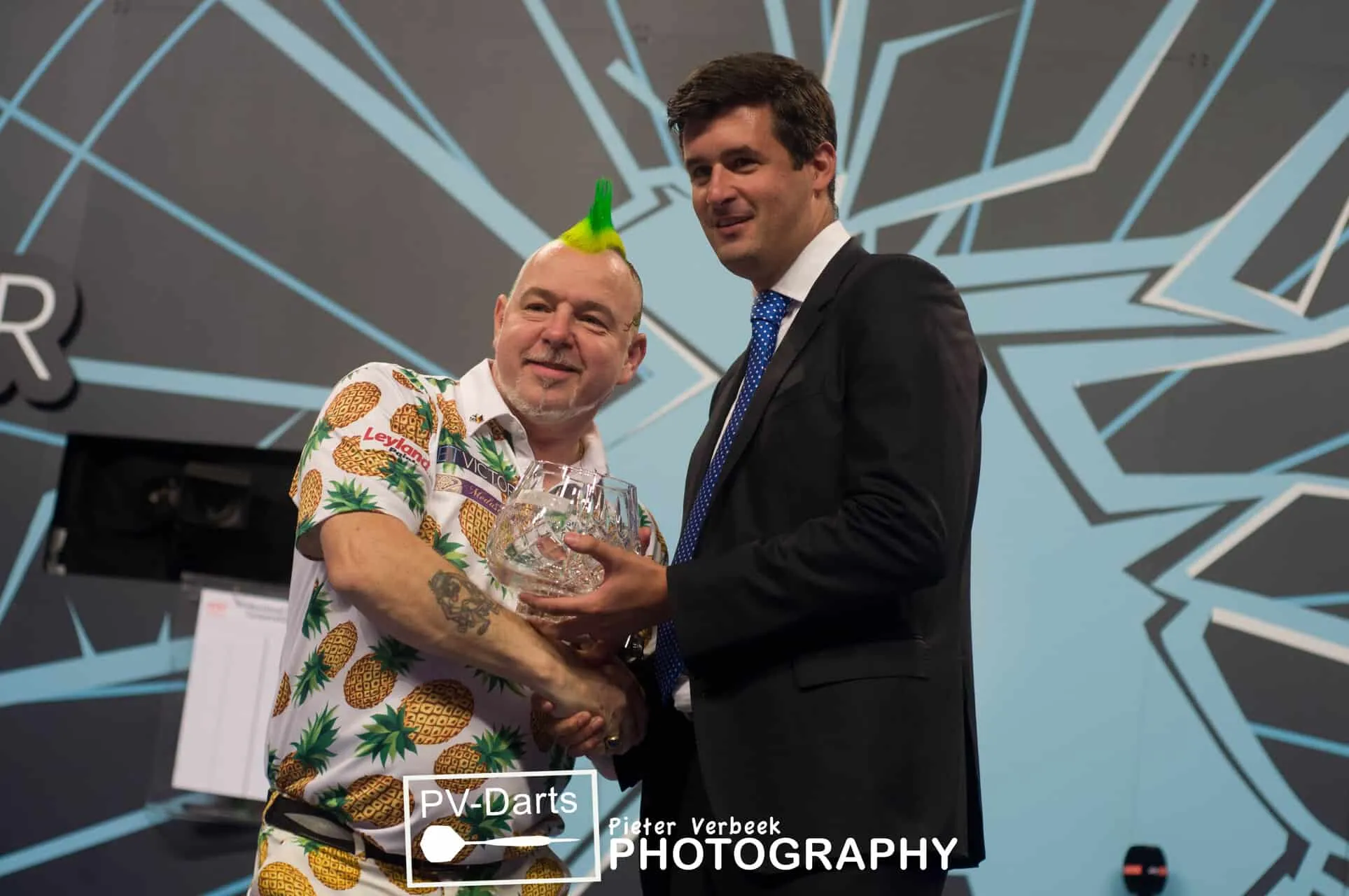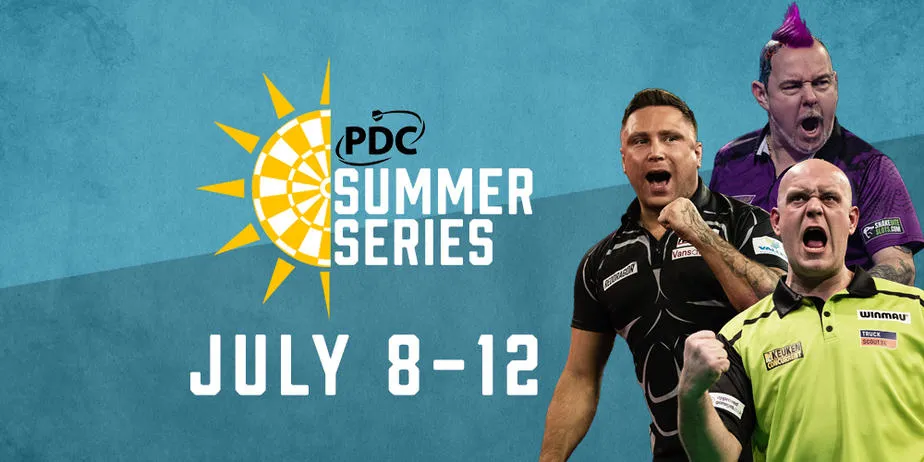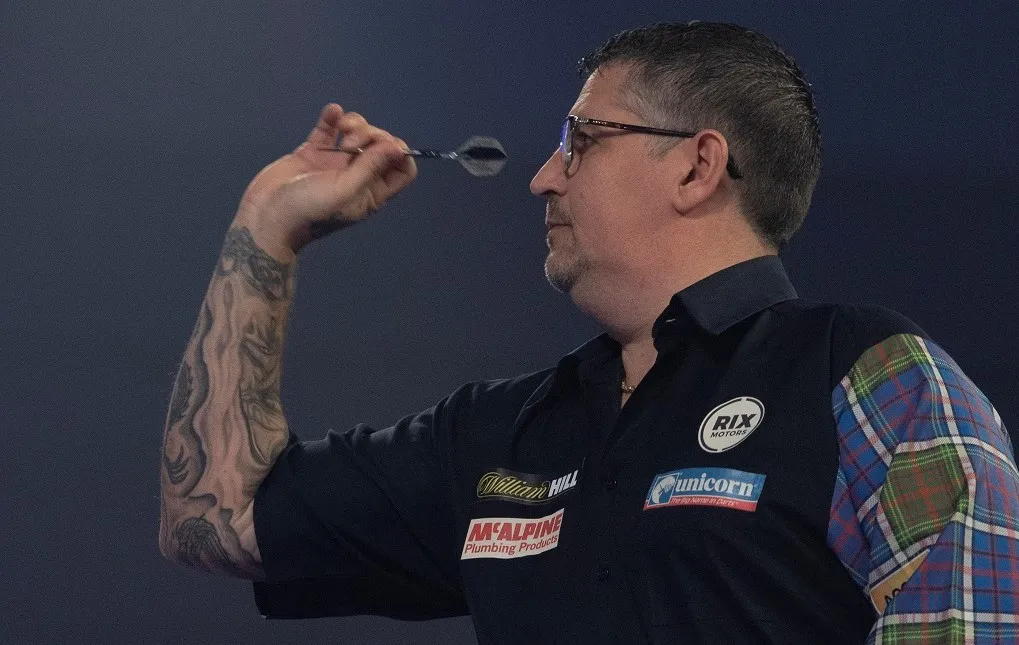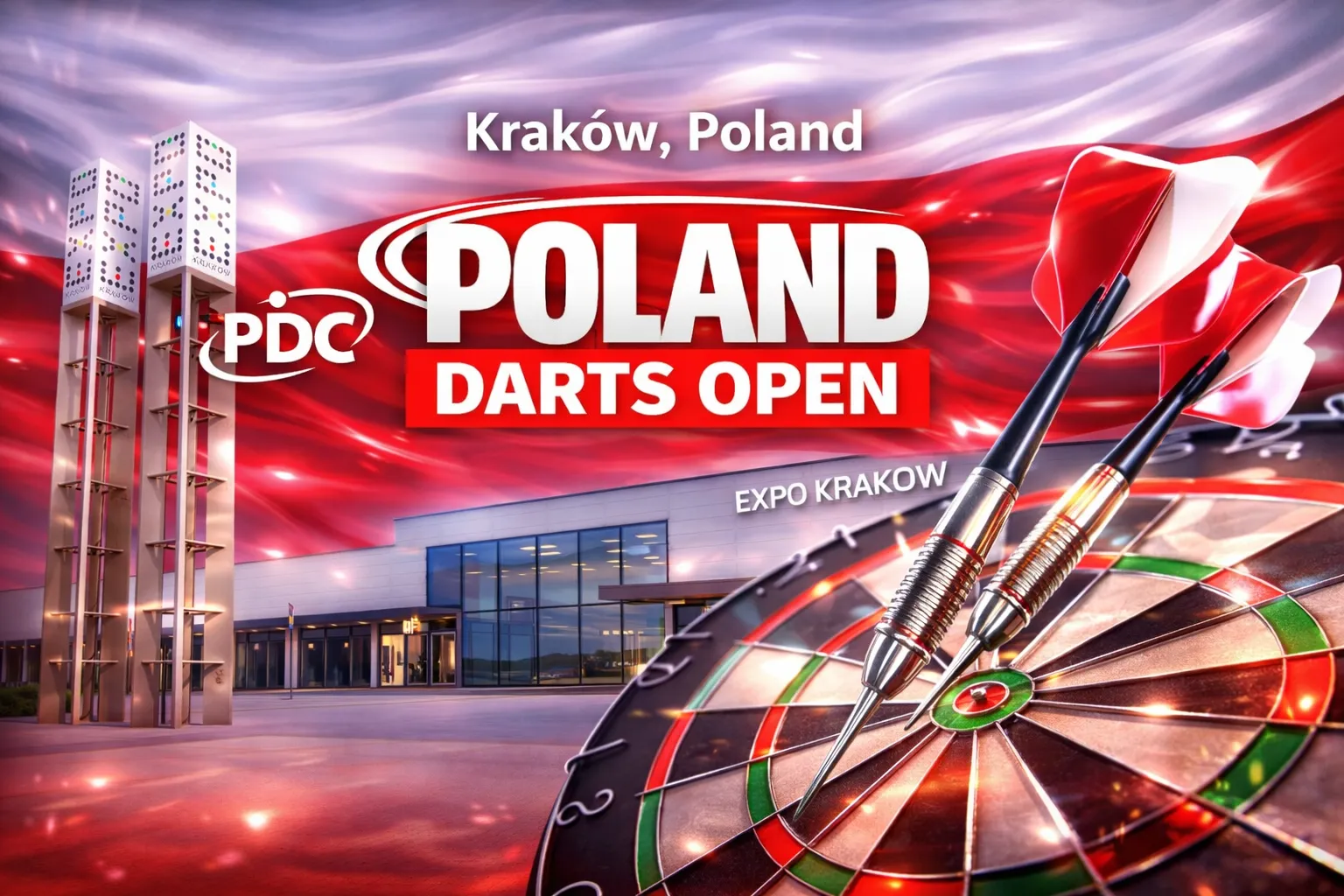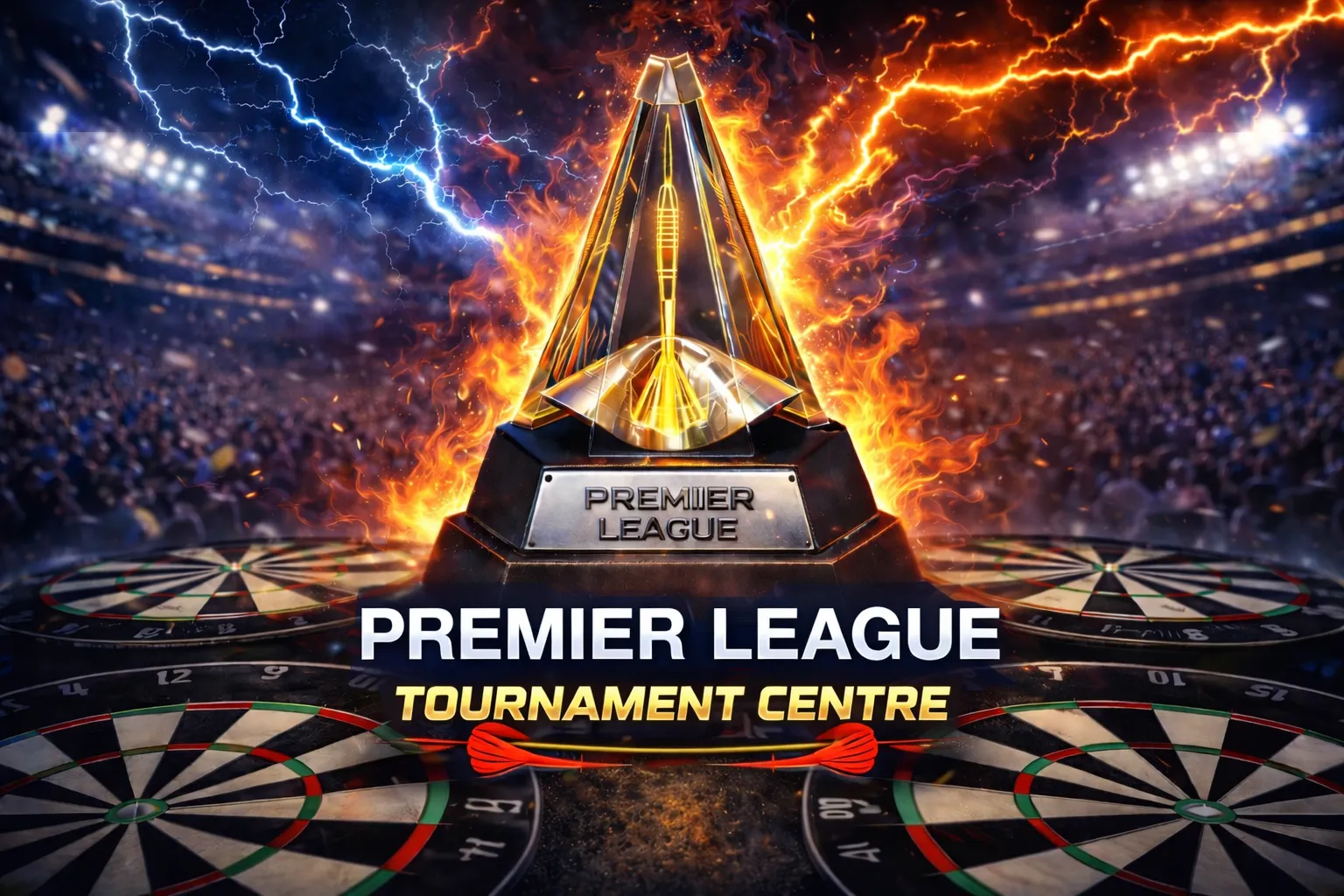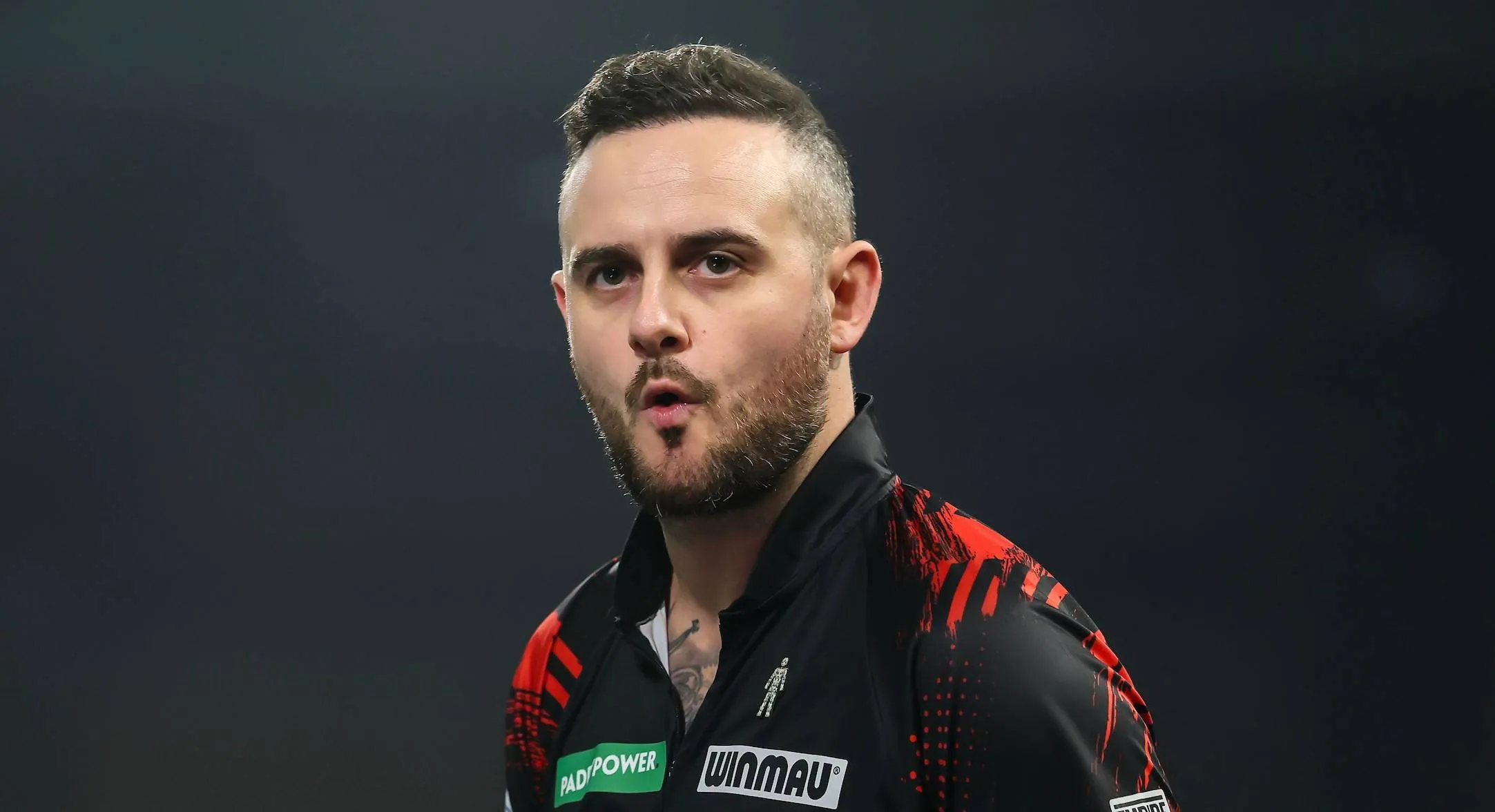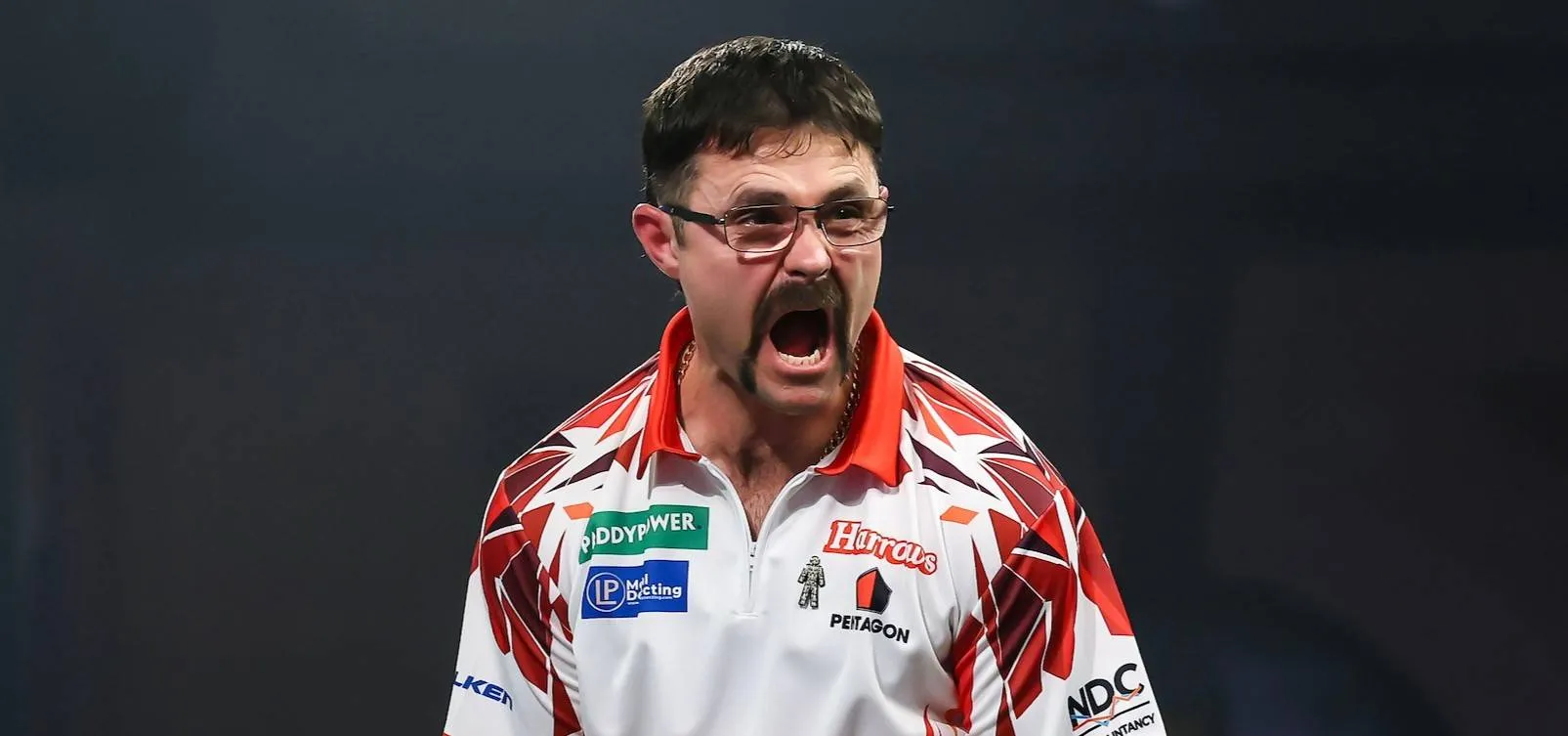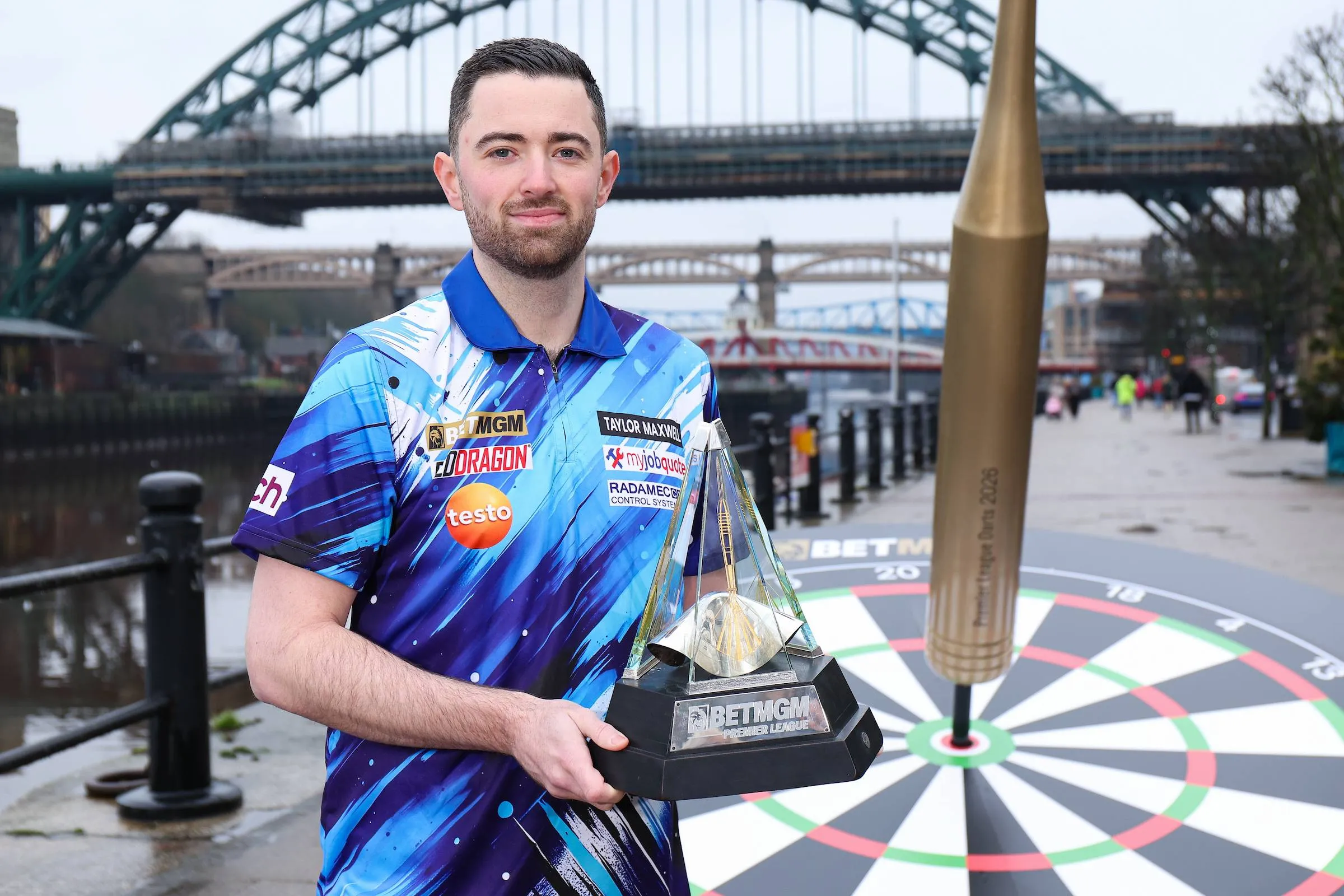From Home Tour to changing of the guard: Darts in the coronavirus era
PDCFriday, 12 March 2021 at 16:00
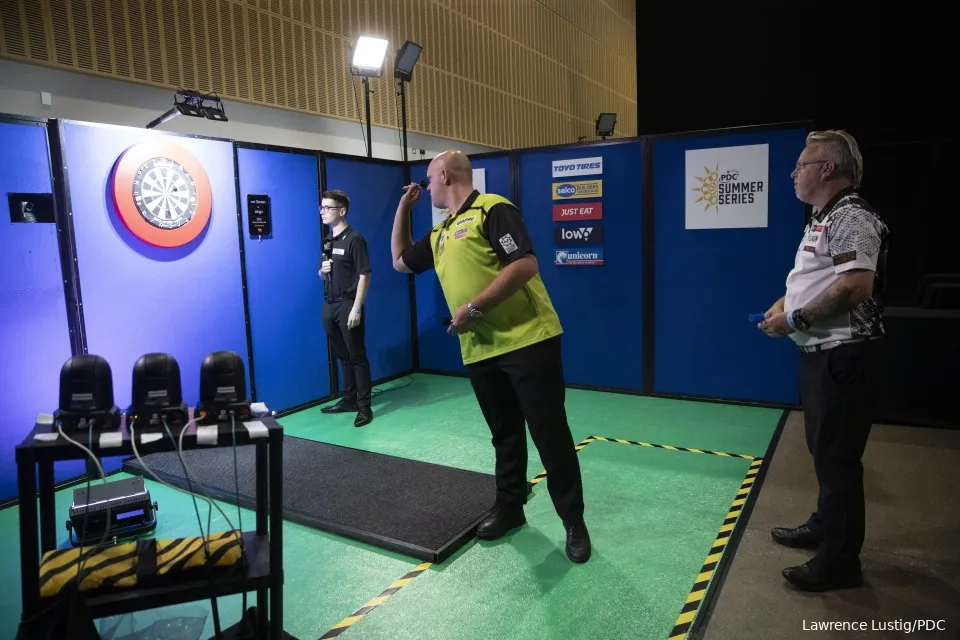
Today it is exactly one year ago since the last darts event with a live crowd was played without any restrictions due to the Coronavirus pandemic. In this article, we take a look back at a darts year in unprecedented times.
The coronavirus had been rampant in Europe for several weeks when the sixth night of the Premier League Darts was played in Liverpool on March 12. Irresponsible, was the opinion of some people on social media at the time. Many darts followers and fans felt that after that night, venues filled with thousands of spectators would be over for the time being. But not many people would have thought that the consequences are still visible after twelve months.
After that the Premier League night, two more Players Championship tournaments were played the following weekend (March 14-15). A few days later, the PDC announced that the calendar had been wiped clean until the end of April. In April, it was announced that no PDC tournaments could be played in May and June either.
Read also
Alternative
With the cancelation of ranking tournaments, suddenly the income for darts players was gone too. In cooperation with the PDPA (players' union), an emergency fund was set up. Each Tour Card holder in need of money, could receive one thousand pounds. This was an advance on future prize money.
But there was more. A digital competition was set up, the PDC Home Tour. All Tour Card holders were invited to participate. Participants were paid £500 per night of action. Players played their matches from home and a camera or webcam recorded all their scores.
The group stage of the PDC Home Tour was played from April 17 to May 18 across 32 evenings. Four players played matches against each other, with the group winner qualifying for the play-offs. The 32 group winners started the play-offs on May 26 and on June 5 there was a Championship Group with the four remaining players. Nathan Aspinall won the final group and later even received an invitation to the Grand Slam of Darts.
The circuit resumed
A week after the PDC Home Tour ended, the message came that the circuit could resume in July. From July 8-12, five consecutive Players Championship tournaments would be held in Milton Keynes. The five-day event was labelled as the PDC Summer Series.
All this under strict conditions set by the British government. A bubble was created and players were not allowed to leave their hotel from their arrival on July 7 until the end of the Summer Series.
Read also
Upon arrival, players were tested and until the results of this test were known, the players had to stay in their hotel room. When tested positive, a player had to go into self-isolation for two weeks. In case of a negative Covid-test, a player was given a wristband, which had to be worn during the entire event. With this wristband a dart player was allowed to move freely in the bubble, which consisted of a hotel, restaurant and the playing area.

Also during the tournaments, measures were taken to prevent possible infection. Players were expected to keep one metre distance from each other and wash their hands regularly.
In addition, walkways were placed and there was a waiting area where players had to stand when their opponent was throwing. Also, players had their own table where they could put their belongings (such as water bottle, mobile and darts equipment). These tables were cleaned after each match. As soon as a player lost, they had to leave the playing area and return to the hotel.
Michael van Gerwen won two tournaments during the Summer Series, while Ryan Joyce, James Wade and Peter Wright each won one event. The World Matchplay was played one week later, under the same strict rules and of course without an audience. The tournament was surprisingly won by Dimitri van den Bergh, who captured his first major title.
Premier League action returned
At the end of August, the Premier League Darts finally resumed. Not under the watchful eye of thousands of fans, but without a crowd in Milton Keynes. The ten remaining rounds were played from August 25 to September 5 at a furious pace.
For the first time since 2012, Michael van Gerwen failed to win the league phase, finishing sixth and missing the play-offs. Glen Durrant won the competition and went through to the final night together with Peter Wright, Nathan Aspinall and Gary Anderson. Durrant claimed the title during the play-offs, after beating Anderson (10-9) and Aspinall (11-8).
Crowd returned temporarily
In September and October, the audience returned for a short time during the European Tour tournaments and the European Championship. A few hundred fans were allowed to attend. They had to wear a mask and were not allowed to chant in the venue.
The last European Tour tournaments were won by Devon Petersen, Jose de Sousa and Joe Cullen, while Peter Wright won his first European Championship title in front of several hundred spectators.
Tournaments back to played behind closed doors
The return of the public proved to be short-lived, as the second wave of Coronavirus reversed the relaxations. Tournaments such as the World Grand Prix, Grand Slam of Darts, World Cup of Darts and the Players Championship Finals were all held behind closed doors.
But there was hope that a limited audience would be allowed to attend the PDC World Darts Championship in Alexandra Palace. London was classified as Tier 2 by the British government, which meant that a thousand people were allowed to attend sporting events.
Just before the start of the PDC World Darts Championship, it was announced that the measures needed to be tightened up to counteract the high number of infections. London went back into lockdown on December 16, making fans only welcome on the opening night of the World Championship.
Also, before participating in the World Championship, players had to undergo a Covid-test. This led to a positive test for Martijn Kleermaker, which meant the Dutchman had to put a stop to his debut at the Alexandra Palace. Earlier Stephen Bunting (World Grand Prix), Adrian Lewis (World Grand Prix) and Glen Durrant (European Championship) missed out on a major event because they were infected by the coronavirus.
Without Kleermaker and the presence of the fans, the World Championship continued at Alexandra Palace. Defending champion Peter Wright was surprisingly eliminated in the third round by Gabriel Clemens, while Michael van Gerwen lost to Dave Chisnall in the quarter-finals. Gerwyn Price took advantage and won his first world title by defeating Gary Anderson in the final.
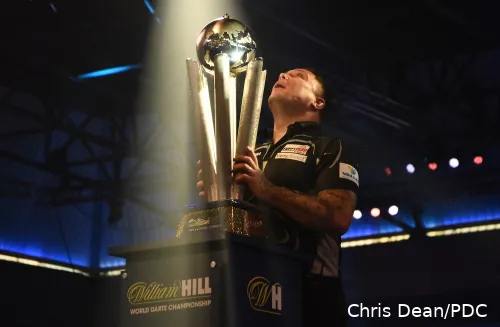
Change of the guard
As a result of Price becoming World Champion, he also took over the number one position in the PDC Order of Merit from Van Gerwen. The Dutchman had held this position for seven years.
Van Gerwen managed to win just two of eleven televised tournaments in 2020, his worst since 2013. Price won three and started 2021 with the world title, while Wright also won three televised titles last year.
Read also
The established names did not fully benefit from Van Gerwen's below-par season. New names emerged. Dimitri van den Bergh (World Matchplay), Glen Durrant (Premier League Darts) and Jose de Sousa (Grand Slam of Darts) won their first major titles.
Dirk van Duijvenbode was one of the absolute highlights of the last twelve months, with a final at the World Grand Prix and quarter-finals at the European Championship, the Players Championship Finals and the World Championship.
Devon Petersen had a strong 2020 and became the first ever African darts player to win a PDC tournament. The South African has now worked his way up to 30th position in the world rankings, one place above Van Duijvenbode.
The changing of the guard continued in early 2021 as Jonny Clayton surprisingly took the title at the Masters. In addition, there were several other players who stepped into the spotlight.
Mervyn King showed he is still a man to be reckoned with. He was close to an invitation to the Premier League Darts after reaching the finals at the Players Championship Finals and the Masters.
Last weekend we saw another major-finalist. Luke Humphries reached the final at the UK Open, after beating the likes of Dave Chisnall and Michael van Gerwen. The title proved to be a bridge too far, as the victory went to James Wade, who won a major title for the first time since November 2018.
New season starts under strict measures
Due to strict corona measures in Europe, the start of the new PDC season was postponed for a few weeks. The Q-School was moved to February, but the Masters went on at the end of January.
The Q-School usually attracts many hundreds of participants, which would make it difficult to keep sufficient distance between them. Therefore the decision was made to split the Q-School into several phases. The Q-School did not last four days, but ten days in total.
Divided into two groups, players first had to qualify for the final phase of both the European and the UK Q-School. The final phase consisted of a maximum of 128 players at both locations, who actually competed for the Tour Cards.
After the final Tour Cards were distributed, the PDC ranking season started at the end of February with the first Super Series. Similar to the Summer, Autumn and Winter Series that were played in 2020.
In the weeks to come, two more Super Series are scheduled, each consisting of four Players Championship tournaments. These will be played from March 16-19 and from April 24-27. In between, the Premier League Darts gets underway. The first half of the competition is played behind closed doors in April.
World Matchplay under normal conditions?
In the coming weeks and months, tournaments will still be played without spectators and under strict measures, but the end of the Coronavirus era is potentially in sight.
In the United Kingdom in particular, the number of vaccinations is going through the roof. British Prime Minister Boris Johnson recently published a roadmap to get out of the lockdown and on June 21 he wants to lift the last restrictions barring if conditions are not met.
Commenting on this news, PDC CEO Matt Porter said he is hopeful that fans will be allowed to attend the World Matchplay in July. Time will tell...
Read also
claps 2visitors 2
Just in
Popular news
Latest comments
- what a load of crocmedinabello19-02-2026
- So,it's a rubbish league,waste of time. Just put 8000 people in a building every Thursday,get them all drunk,and wonder why it's a complete joke. And forget every other player apart from 8. It's a ridiculous,inane,and needless so called competition.rick6718-02-2026
- Sorry,I've never been a professional darts player,but obviously from your comment,you have. So, going to your reply, you're blaming the management,not the player? So in that respect,he should get a different manager? That's basically all your comment is saying. Don't let him do money makers,which Barney said is easy money, instead of tournaments? Shake hands instead of trophies? Well I guess the manager knows best,as he has a big cut!rick6716-02-2026
- Sorry Mr rick67, erm what punditry credentials do you have to comment on a pundit? There's a reason why many top professionals have management teams. They know how to manage schedules etc so the players can just play. And how is Edgar wrong? Last year MVG failed to qualify by missing too many tournaments and underperforming. He's repeating the error this year so Edgar is right In calling this out.BandB15-02-2026
- Just get of Mardle,I didn't pay to watch him,and I don't want him for free! Let's see,how many world champions,either code,did you win? None! Now mason does it more as a player who was a floor player than you were putting pineapple on your shirt. Mardle,just go,you over inflated ego may follow. Tell you what,get on the seniors tour,and show everyone how good you weren'trick6715-02-2026
- Sorry Mr Edgar,erm what have you actually won to comment? Mvg has had his issues,but you have won a grand total of what? I make that nothing. So how can your comment be justified? Let him do what he likes,you do what you like, and we'll see what you win nextrick6715-02-2026
- Seems to be having a moan for no reason and using “Do-Gooder” as an insult makes no sense. It literally means someone who does good things!Wonker12-02-2026
- Mickey Vs mensur for the world champion? It's starting tomorrow,finishes in January!!rick6711-02-2026
- Oh well that's it then. Both these goofs will expect and demand premier league darts next year after this.richieburnettrocks10-02-2026
- Sincere apologies to Richie, I forgot yesterday, slightly belated but Happy Birthday to the great man. Certainly looking good for 59richieburnettrocks08-02-2026
Loading
